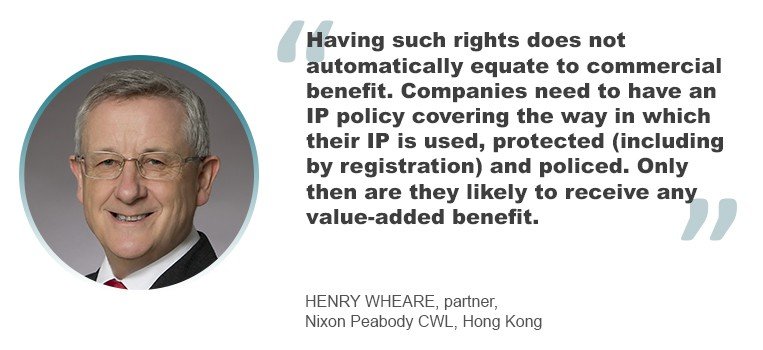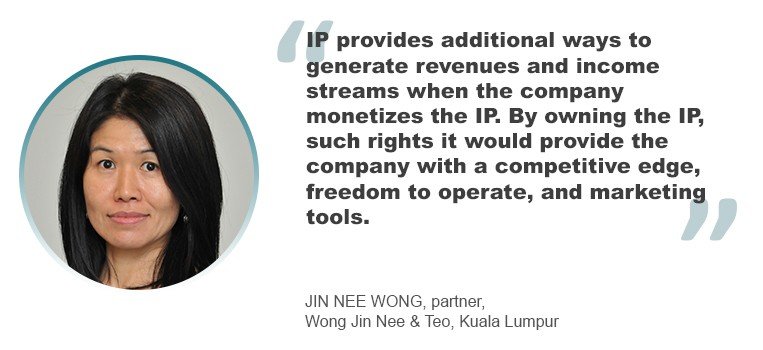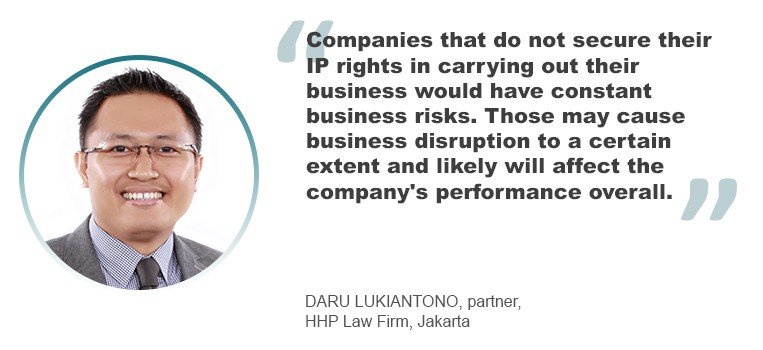How does owning IP rights impact a company’s performance?
30 April 2021

A recent survey suggests a correlation between innovation – and intellectual property – and a company’s financial performance. Excel V. Dyquiangco asked lawyers in the region whether they agree.
A recent survey conducted by Clarivate, a provider of analytics and insights, showed that the stock performance of the 10-year Top 100 Global Innovators increased at a greater rate than that of the Dow Jones Industrial Average and S&P 500. This, the survey said, goes towards showing that companies which invest in innovation (and intellectual property) do see significant increases in their performance.
However, according to Marcus Liu, associate director at Amica Law in Singapore, it would be too simplistic to draw a direct correlation between ownership of IP and economic performance.
“The absolute number of IP held by a company is merely an indicator as to the extent that a company focuses on intellectual property,” he says. “But I would certainly agree that companies which have a focus on intellectual property and are able to effectively manage the same will be able to better capitalize on and protect their market and business opportunities over a longer period of time. This would tend to lead to higher revenues per employee and higher wages as well, which is supported by the results of the survey.”

Henry Wheare, a partner at Nixon Peabody CWL in Hong Kong, agrees how simplistic it could be, stressing that quality – rather than quantity – is more important.
“This gets back to having a well-thought out and executed IP policy,” he says. “Having and enforcing IPR will ensure the exclusivity of brands, designs or inventions and is a legitimate way to restrain competition, but it has its limits as competitors can use different brands and design around innovations. Sometimes, keeping IP secret rather than registering it is a better way to achieve value (a secret formula, manufacturing knowhow or source of supply).”
He adds that intellectual property is rightly viewed as an asset, but IP rights (IPR) are primarily defensive against unfair competition.

“They are not necessarily commercial outside the field of licensing or assignments but are often inherent to every company’s performance, as for example with respect to its trademarks, copyright material and knowhow, none of which require registration,” he says. “Created IPR in the form of registered patents and designs is less common, but having such rights does not automatically equate to commercial benefit. Companies need to have an IP policy covering the way in which their IP is used, protected (including by registration) and policed. Only then are they likely to receive any value-added benefit.”
Affecting a company’s performance
For Jin Nee Wong, a partner at Wong Jin Nee & Teo in Kuala Lumpur, intellectual property, as the currency of business in the 21st century, has a tremendous and positive impact on a company.

“It is a valuable business asset and owning the IP would increase the value of the company, enhance its performance, increase competitive edge and attract investors or funders, just to name a few,” she says, “IP provides additional ways to generate revenues and income streams when the company monetizes the IP. By owning the IP, be it a patent, trademark or industrial design, such rights would establish the company’s ownership to these rights, facilitating its use without the concern of threats of infringement, and it would also provide the company with a competitive edge, freedom to operate, and marketing tools. Such IPR would also add value to the company’s credibility and spur growth for the company.”
According to Daru Lukiantono, a partner at HHP Law Firm in Jakarta, ownership of IP surely would provide a significant impact on performance of a company.
“By the ownership of IP, a company would enjoy safe use of its IP either by way of exploiting the rights by its own or through another party by way of licensing,” he says. “Having proper ownership of the IP rights, a company would also be able to take action against third parties who without authorization use the IP rights to gain commercial benefit that usually give certain impact to the company's business.”

He adds that, generally, if the business of a company heavily relies on the exploitation and commercialization of its IP rights, whether to support the distribution and sale of its products and/or carrying out the line of services, then definitely making sure that its IP rights have proper protection is mandatory.
“Companies that do not secure their IP rights in carrying out their business would have constant business risks, either it may come from third party infringer that would want to take benefit by commercially using the IP rights without consent or possibly also from regulatory perspective where several business licenses and permits may require evidence of IP ownership in engaging the company's line of business generally,” he says. “Those may cause business disruption to a certain extent and likely will affect the company's performance overall.”
His colleague, Rafiqi R. Padmowijoto, an associate at the firm, adds this is most especially true in light of the pandemic.
“For example, we have seen in practice where products that are crucially important in times of the Covid pandemic – masks and personal protective equipment – are being counterfeited by unauthorized parties considering the high demand of the products by the consumer at large,” he says. “With proper IP rights in place, a company would be able to take action against those counterfeits. Not only that the distribution of counterfeits in the market would affect the company's revenue in general but it would obviously bring potential health risk concerns as to the quality of those counterfeit products.”






